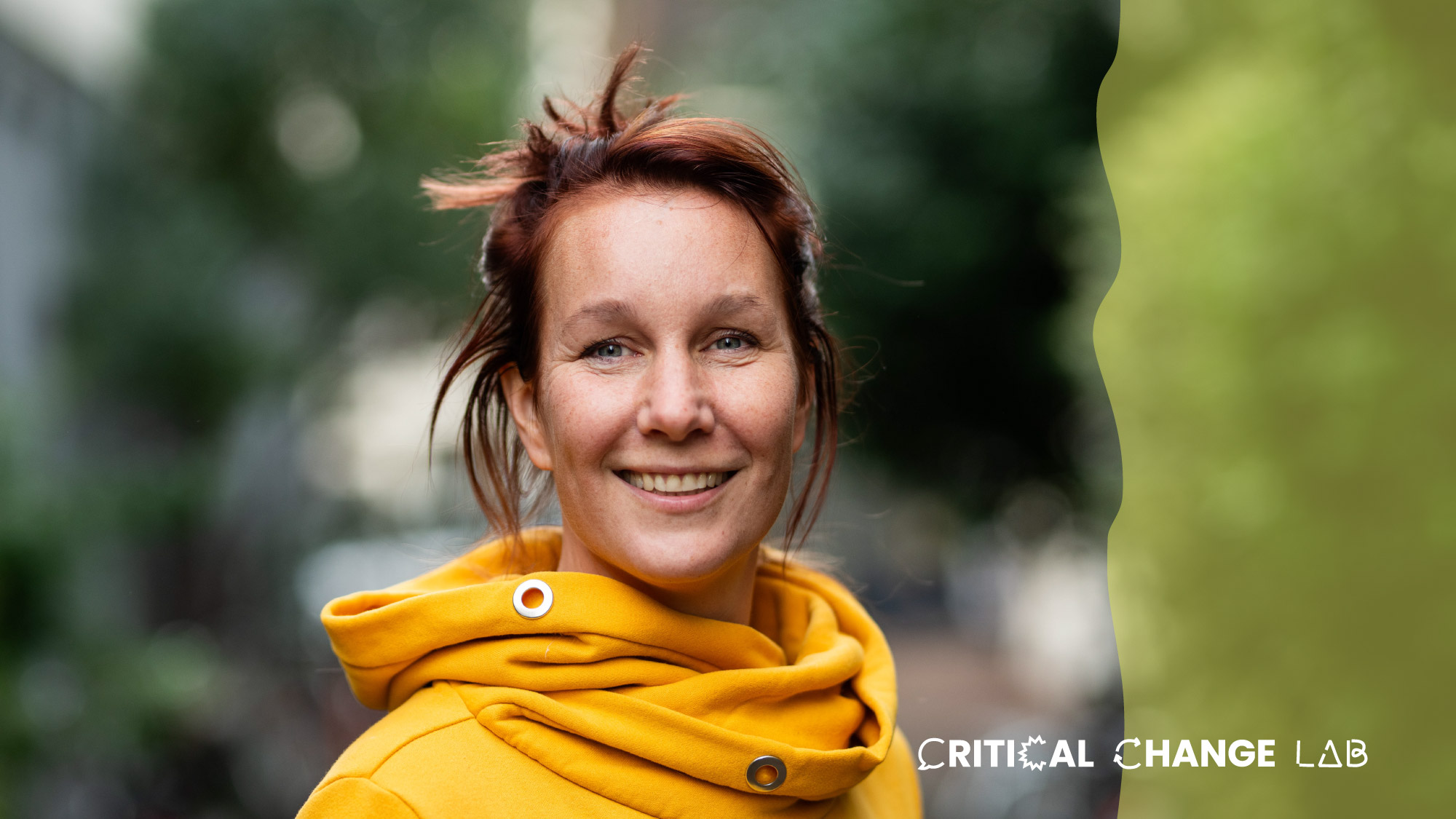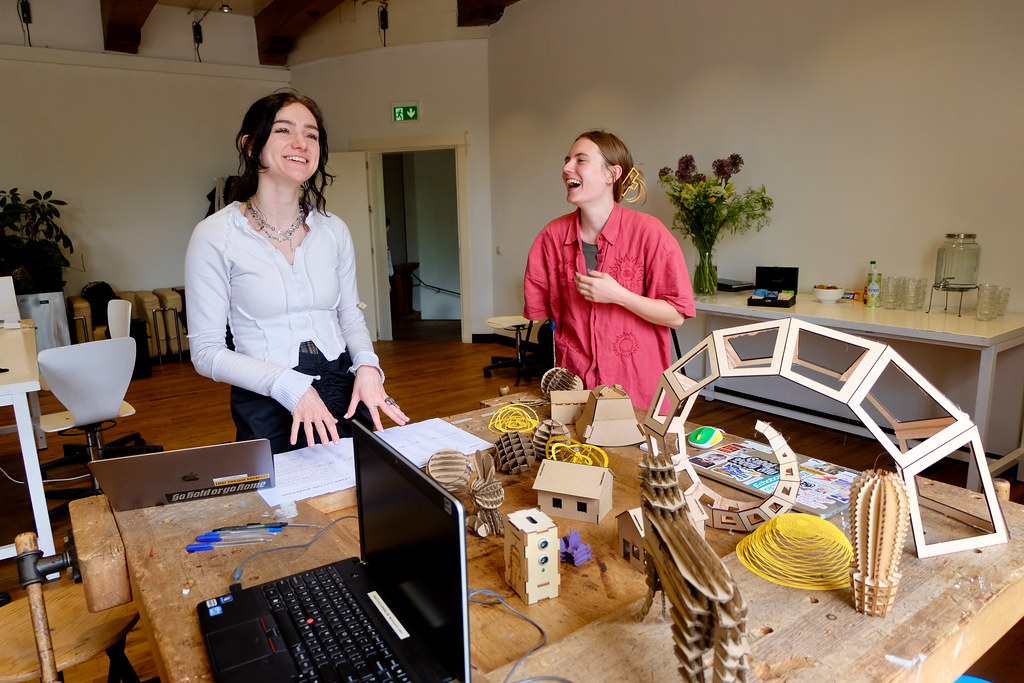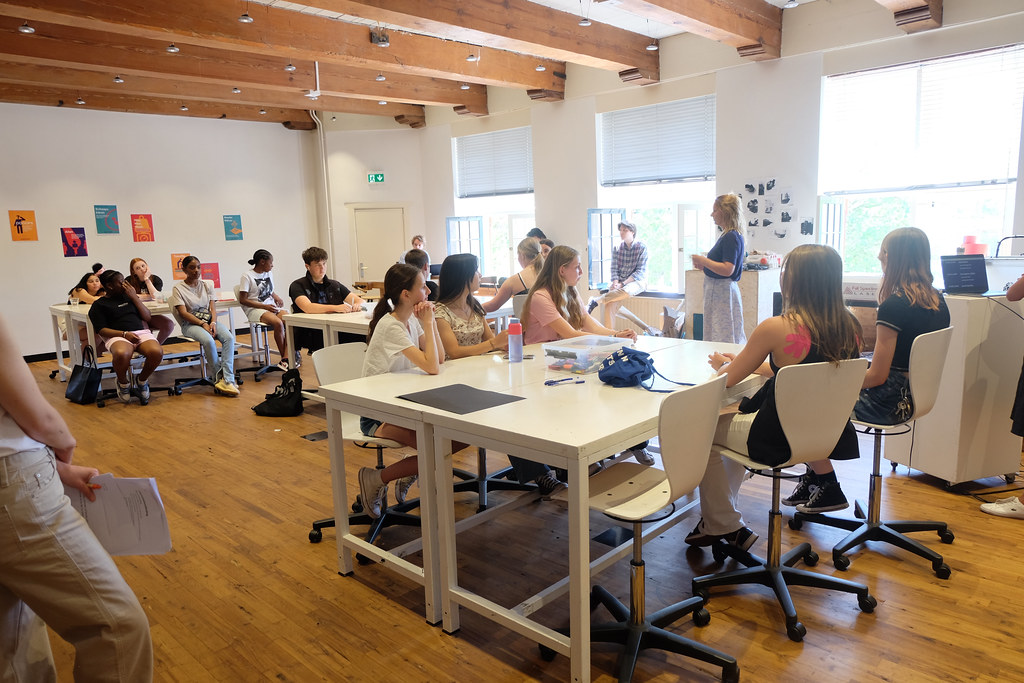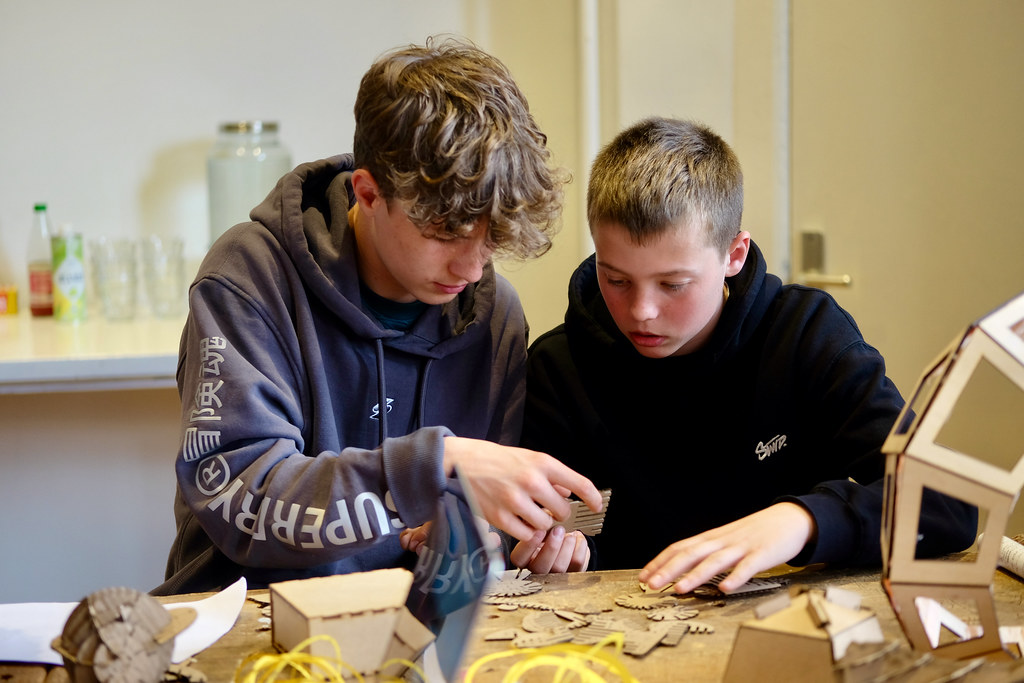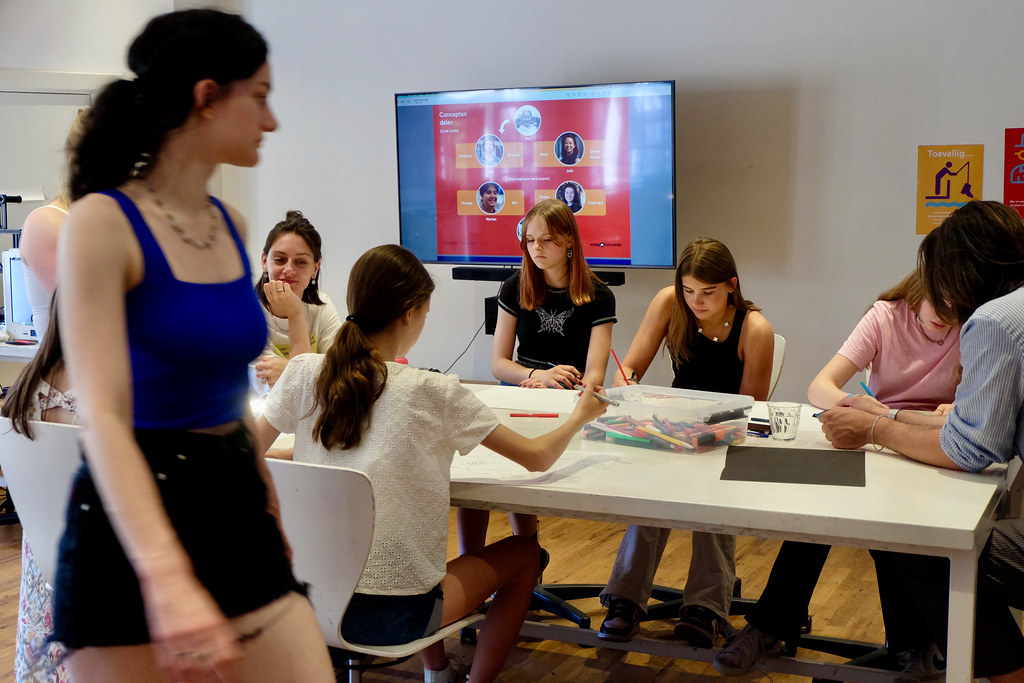Eva Vesseur, who leads the Maker Education Lab at Waag Futurelab, talks to Andrew Newman from Ars Electronica about how critical making can create agency and contribute to social innovation
Waag Futurelab, founded in 1994, is a transdisciplinary organization at the forefront of technology, art, and society who lead the development and implementation of Critical ChangeLab Amsterdam. Their work involves developing critical reflections on technology, nurturing social and technological design skills, and promoting social innovation to create an open, fair, and inclusive future. Through research labs focusing on Code, Life, Make, and Learn, Waag collectively investigates emerging technology, challenges cultural assumptions, and experiments with alternatives based on public values. They embrace open source practices and use research methods that empower people to contribute to shaping their futures by fostering a culture of active participation and co-creation.
The Critical ChangeLab in Amsterdam is being developed within the context of making education, an approach that Waag recognises as an excellent way to teach young people to think critically and cooperate. By discovering, testing, and trying, young people can learn to express their creativity. Waag will investigate how a maker mindset and 21st-century skills can help people (better) find their place in society.
What is the purpose of the Waag Futurelab?
Good question. I think the purpose is agency. That’s essentially it. Citizens will get more agency, be more engaged and be empowered in their role as a citizen. We are a social research institute. We do a lot with technology, arts, and science, however every project we do is basically about agency.
How does the Critical ChangeLab project reflect this push for agency?
Critical ChangeLab is, of course, about giving young people a voice. It also gives them a choice, and importantly ownership, to rethink the democracy. That’s what agency is — giving voice, choice, and ownership.
What’s interesting for us at Waag is that we are always looking for a target group, because we are an institute that does research with citizens, but it’s not like we are a school that has a group of people inside our organization. We are constantly looking for people we want to work with, and I think that’s an interesting question in Critical ChangeLab. It feels really strange to look for a marginalized group because how do we get this specific target group in the Netherlands that needs this voice or choice or ownership?
That’s what agency is — giving voice, choice, and ownership.
The Critical ChangeLab also has a lot to do with culture and the arts, especially in the way we are working with narratives. In your experience, how do you think artistic practices and art thinking can spark agency?
For me, maker education, or making, is not only about working or designing with a 3D printer, but also about shaping the world. Maker skills are one of the keys to agency because if you know how to make something and demystify technology, it gives you ownership. Maker skills are really about ownership, and agency is also about ownership.
Could you share some examples of projects at Waag that demonstrate your approach to critical making, and how it will inform your Critical ChangeLabs.
We are currently working on a project about technological citizenship, which is about owning technology. We do that with 16-year-olds through critical making. We ask them what really activates them and what is their true purpose in life, and then we ask them to design a project. We constantly engage them and make them aware of what they are making and for whom.
One really interesting project came out of this — two girls designed an oyster below in the sea that emits orca sounds to warn the dolphins about fishing nets. It’s a natural sound, and they thought about everything, making sure it did not disturb the ocean. Everything in technology is a human choice, and that’s what we’re doing in that project.
We also do a lot of projects with adults. We are researching the quality of the air through sensors, giving citizens sensors to measure the air quality, so they have data for their own environment.
Yes! I know of that project through my work with the European Union Prize for Citizen Science. It really does give people agency in understanding and actively inhabiting their own environment.
And it’s about power as well, of course.
It always is. So to conclude, could you tell me what are personally most looking forward to in the Critical ChangeLab project?
What I’m really looking forward to is making the marginalised groups part of the lab, having workshops about being marginalised and working with inclusive design to give a voice, and making sure that voice is visible. I’m really looking forward to getting to know these young people, and to see what they come up with, and to learn what groups they find are not inclusive in our democracy right now. I’m really curious about what they think about our current democracy, and what they see as problems or things we should talk about.
Working with inclusive design to give a voice, and making sure that voice is visible.
Join our newsletter to continue to be updated on what we’re up to at #CriticalChangeLab. We’ll always keep it interesting, and only send you updates for as long as you want us to.
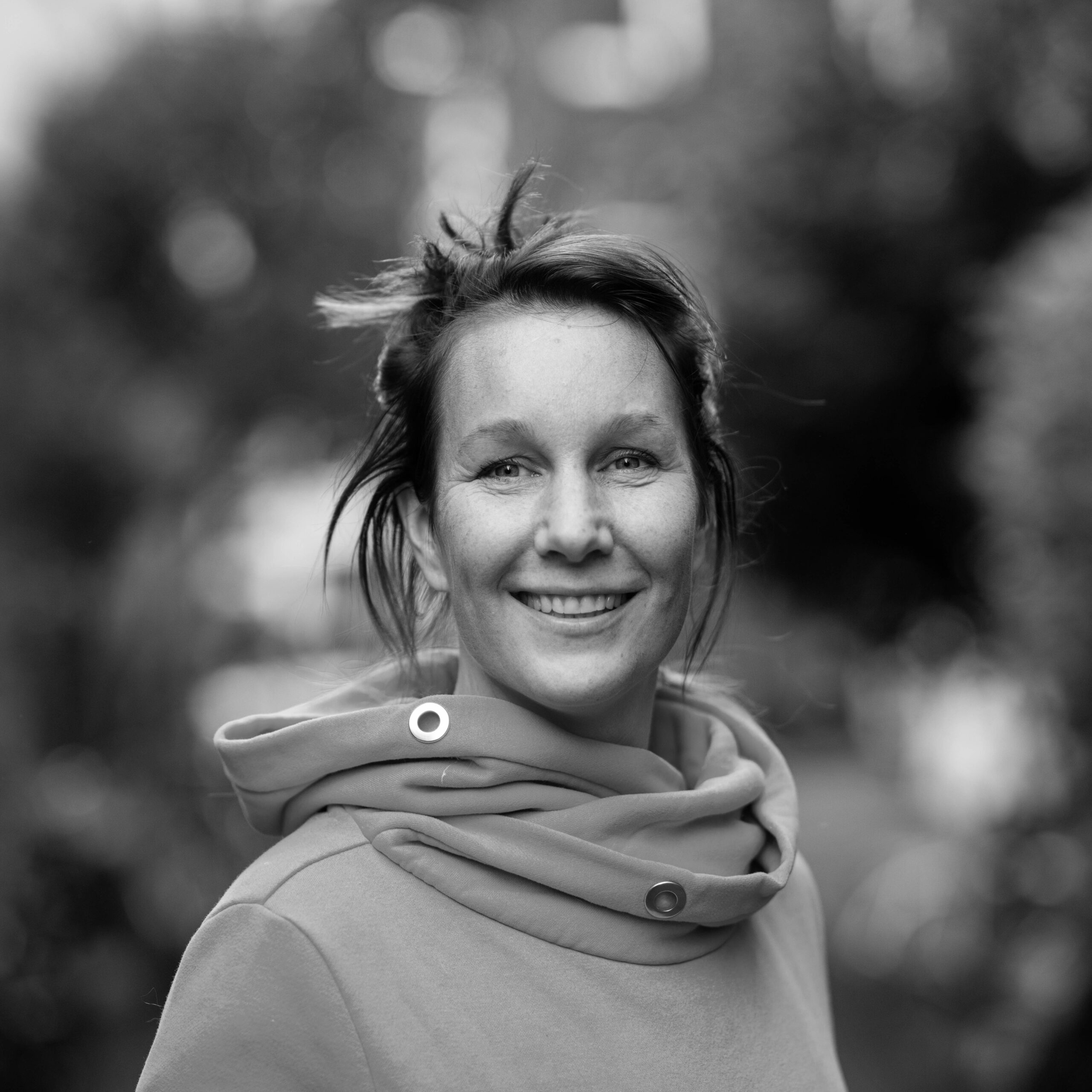
Eva Vesseur leads the Maker Education Lab at Waag Futurelab. She has a strong vision of learning and education of the future. In the Technological Citizenship project, she investigates how critical making can contribute to social innovation. Eva graduated as a scriptwriter and theatre dramaturge and studied educational sciences. With The Education Bureau, she has designed learning concepts for ten years. In 2018, she founded primary school and daycare Klein Amsterdam, where she was director for six years. This school operated according to the concept of ‘Learning in Intermediate Space’, where creativity, ownership and inclusiveness of the evolving human being are most important.
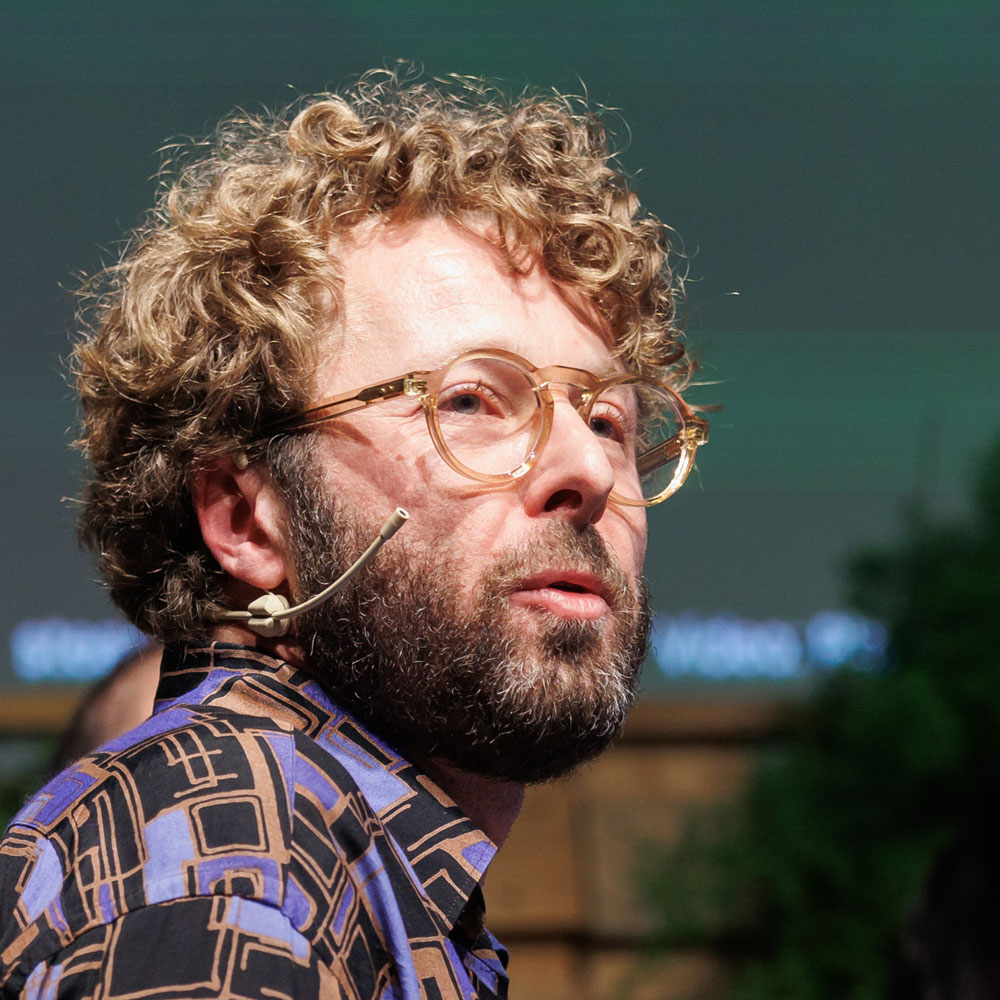
Andrew Newman is focused on fostering transdisciplinary cultures as a producer for the European Platform for Digital Humanism at Ars Electronica. He is responsible for projects aimed at bringing artists and scientists together (STUDIOTOPIA), creating STEAM learning experiences (Critical ChangeLab, Open Science Hub, Creative School and STEAM INC), and promoting citizen science (European Union Prize for Citizen Science and IMPETUS). He previously co-founded the Research Institute for Arts and Technology in Vienna where he focused on integrating artistic research methodologies into technology research and development. andrewnewman.net | Linkedin
